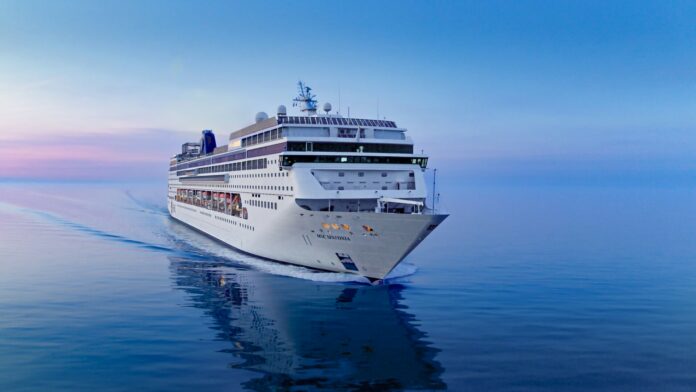The Mediterranean Shipping Company (MSC) Group insists on Greek destinations in the cruise sector, despite the fact that it openly expresses its objections to the imposition of a boarding fee on cruise ships in accordance with a government decision. Specifically, MSC – which has had a strong presence in our country and in the containership sector for decades – is dynamically entering the Greek cruise sector, as the company welcomes the summer with six cruise ships in Greece.
It also actively participates in the tender promoted by the Superfund in Lavrio (a joint venture between MSC and Olympic Marine S.A. of George Prokopiou) and in the ports of Patras and Katakolo (a joint venture between Cruise Terminal Investment Limited Sarl – V Group SM SA of Byron Vassiliadis).
In an interview with “N”, the CEO of MSC Cruises, Gianni Onorato, seems concerned that cruise passengers are being targeted with new charges, while – as he pointed out – other categories of day visitors do not face similar charges.
Regarding the company’s investment plans, Onorato emphasized that ways are constantly being sought to strengthen MSC’s presence in ports with positive prospects such as Katakolo, Patras and Lavrio, while its strategy is not limited only to the country’s large and already developed destinations.
The full interview follows:
What is your forecast for the cruise market ahead of the summer season and what is the current state of the industry a few years after the pandemic?
“The cruise market is now on a path of full recovery and growth.
According to recent CLIA data, 31.7 million passengers were recorded worldwide in 2023 – even surpassing the pre-pandemic levels of 2019, with an increase of 7%.
The global economic footprint of the industry reached 168.6 billion dollars, supporting 1.6 million jobs internationally.
In Greece, the contribution was also significant, with cruising contributing 2 billion dollars to the economy and supporting almost 23,000 jobs by 2023.
As the leading cruise company in the Mediterranean, MSC Cruises is seeing increased demand and is optimistic about this summer season.
Our main priority is to further strengthen our presence in Greece, not only as a popular destination, but also as a strategic homeporting hub.
Greece is at the core of our strategy for the Eastern Mediterranean and we are constantly investing in the discovery and exploitation of new ports and destinations that highlight the Greek character and culture.
In 2025, our companies – MSC Cruises and Explora Journeys – will visit more than 20 Greek ports.
We are expanding our activity to less visited areas, both in Northern Greece and on the islands, with a firm commitment to operating throughout the year from Piraeus.
The inclusion of Syros in MSC Cruises’ itineraries for the first time is particularly important. Its cultural heritage, architecture and authenticity make it ideal for guests seeking genuine Greek experiences.
At the same time, Explora Journeys is adding new islands, such as Milos and Patmos, to its program, for travelers who seek discreet and authentic itineraries in the Aegean.
What are MSC’s plans for the Greek market, given the proposals for the ports of Katakolo, Patras and Lavrio? How can they be exploited?
“As a company with a long-standing presence and leading position in cruise in the Mediterranean, we are always open to long-term partnerships based on mutual benefit.
Our strategy for Greece is not limited to large and already developed destinations.
On the contrary, we are constantly looking for ways to strengthen our presence in ports with positive prospects such as Katakolo, Patras and Lavrio.
We firmly believe that these ports can play an important role in the broader development of the cruise industry in Greece.
Patras and Lavrio, with their geographical location and proximity to key tourist and urban hubs, can act as important alternative entry and embarkation gateways.
In this context, we continue to evaluate opportunities to support infrastructure projects, upgrades or improvements to facilities.
We are in constant dialogue with port authorities and local stakeholders in order to enhance Greece’s overall offering as a cruise destination.
Our common goal is long-term sustainability and the creation of value for local communities through strategic partnerships based on plan, transparency and a shared vision.”
How do you see MSC Group’s activity in Greece and the Eastern Mediterranean? What prospects are opening up?
“The Eastern Mediterranean is a region of strategic importance for MSC Group, and Greece holds a key position in our plans.
We are fully committed to strengthening our presence in the country, not only through the growth of our destinations, but also through the support of a more balanced and sustainable tourism model.
We are constantly exploring new areas in Greece, aiming at contributing to the decongestion of over-visited destinations and highlighting less popular destinations – especially in Northern Greece and islands that remain outside the major tourist flows.
This diversification of the tourism offer is crucial for the sustainability of the sector and the preservation of the authenticity of the destinations.
At the same time, we are expanding our activity in other countries in the region, such as Cyprus and Turkey, seeking to develop more boarding options and enhance connectivity in the Eastern Mediterranean.
Year-round operation is also a central objective for us – we want our presence to have a positive economic impact 12 months a year, creating lasting value and jobs for local communities.
We are actively evaluating new destinations and ports, with priority given to those that can significantly differentiate the traveler experience.
However, to exploit these opportunities, close cooperation with national and local authorities is essential.
The appropriate infrastructure, the operational readiness of the ports and the upgrading of the services provided are basic conditions for success.
In this context, we welcome the support of the State in identifying and prioritizing investment areas.
This will allow us to bring to light hidden ‘diamonds’ of Greece and integrate them into the global cruise map.”














